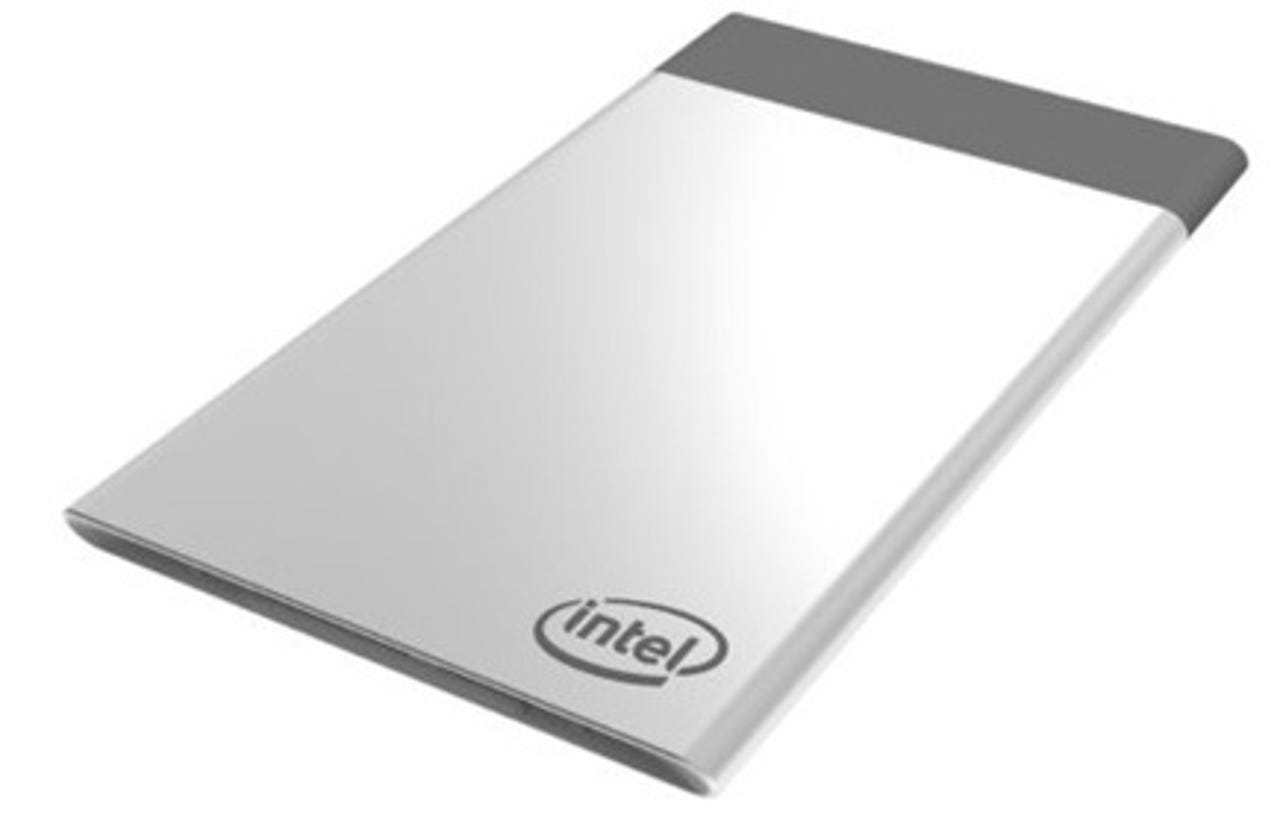CES 2017: Intel's ultra-slim Compute Card to ease upgrades for IoT devices


Intel Compute Card
First there was the Compute Stick, Intel's mini-computer that resembles a pack of gum. Now the chip giant is releasing a PC that's even more diminutive than that device.
CES 2017
The new Compute Card is even thinner than the Compute Stick, looking more like a slightly bigger, thicker credit card. It's a mere 5mm thick, but still manages to house most of the essentials for a running computer.
CNET: Intel's Compute Card could keep your gadgets from going obsolete
Whereas the Compute Stick was at least partially marketed to consumers looking to stick a full-fledged PC in the HDMI port of their HDTV for living room computing tasks, the Compute Card is designed to be added to connected devices as a module that's easy to swap out when you want to upgrade its "smart" capabilities.
Despite its dimensions, the Compute Card still fits most of the guts of a typical PC within its narrow frame. That even includes Intel's latest Core processors -- the seventh generation or Kaby Lake CPUs -- rather than the low-performance system-on-a-chip that Internet of Things devices typically ship with. It also naturally comes with built-in Wi-Fi and Bluetooth to connect the smart object with the greater world, along with what the company is calling a "USB-C plus extension" to connect the Compute Card with products.
The fact that the Compute Card features most of what you need from a bare-bones PC will naturally lead some to wonder if Intel plans to offer this as a product that consumers can use for their own computing tasks, rather than it being placed in a smart refrigerator or vending machine. While the company is clearly marketing the Compute Card as an IoT platform, it's not inconceivable that you could place it in a compatible dock and use it like the Compute Stick or other PCs on a stick.
The companies that Intel lists as partners for the platform should give hope to those who might want a Compute Card of their own. It has Dell, HP, and Lenovo lined up to help it create products that can make use of the Compute Card, and obviously those manufacturers are much better known for building PCs than kiosks and digital signs.
Intel says the Compute Card will be available by the middle of the year, so we'll wait to see what compatible devices are announced and whether docks to use it as a dedicated PC emerge on the company's road map.